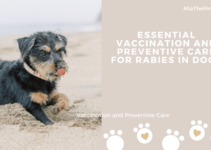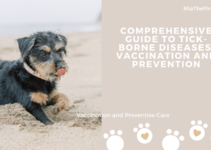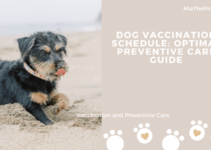Understanding Kennel Cough: Essential Vaccination and Preventive Care for Dogs
When it comes to the health and well-being of our beloved canine companions, one ailment that pet owners should be aware of is kennel cough. This highly contagious respiratory infection can affect dogs of all ages and breeds. In this article, we will delve into the intricacies of kennel cough, its causes, symptoms, and most importantly, the essential vaccination and preventive care measures that can help protect our furry friends.
What is Kennel Cough?
Kennel cough, also known as infectious tracheobronchitis, is a respiratory infection that affects the upper respiratory tract of dogs. It is commonly transmitted in environments where dogs come into close contact with each other, such as boarding facilities, dog parks, and grooming salons. The infection is caused by a combination of viruses and bacteria, including the canine parainfluenza virus and Bordetella bronchiseptica bacteria.
Causes and Symptoms of Kennel Cough
The primary mode of transmission for kennel cough is through the inhalation of airborne respiratory droplets produced by infected dogs. Direct nose-to-nose contact can also facilitate the spread of the infection. The most common symptoms of kennel cough include a persistent dry cough, sneezing, nasal discharge, lethargy, and occasionally, a mild fever. In severe cases, dogs may experience difficulty breathing and loss of appetite.
Importance of Vaccination for Kennel Cough
Vaccination plays a crucial role in preventing kennel cough and reducing the severity of symptoms in infected dogs. By stimulating the immune system, vaccines provide protection against the pathogens responsible for the infection. Regular vaccination is especially important for dogs that frequently interact with other dogs or are routinely exposed to high-risk environments.
Types of Vaccines Available for Kennel Cough Prevention
Several vaccines are available to safeguard dogs against kennel cough. The most common types include injectable vaccines, intranasal vaccines, and oral vaccines. Injectable vaccines are administered through a subcutaneous injection, while intranasal vaccines are administered through the dog’s nasal passages. Oral vaccines, on the other hand, are given by mouth. It is essential to consult with a veterinarian to determine the most appropriate vaccine and vaccination schedule for your furry companion.
Preventive Care Measures for Kennel Cough
In addition to vaccination, there are various preventive care measures that can help minimize the risk of kennel cough. Proper hygiene and sanitation practices, such as regular cleaning of food and water bowls, toys, and bedding, can help reduce the spread of the infection. Avoiding crowded and poorly ventilated areas where dogs congregate is also advisable. Furthermore, maintaining a strong immune system through a balanced diet, regular exercise, and stress reduction techniques can enhance a dog’s ability to fight off infections.
How to Minimize the Risk of Kennel Cough
While it may not be possible to completely eliminate the risk of kennel cough, there are steps that pet owners can take to minimize the likelihood of their dogs contracting the infection. Avoiding high-risk environments, ensuring proper vaccination, and practicing good hygiene are key. Additionally, early detection and prompt treatment of any symptoms can help prevent the spread of the infection to other dogs. Regular check-ups with a veterinarian are essential for maintaining your dog’s overall health and well-being.
In conclusion, understanding kennel cough and the importance of vaccination and preventive care measures is vital for every dog owner. By taking the necessary precautions and providing the appropriate care, we can ensure the well-being and happiness of our furry companions, protecting them from the discomfort and potential complications associated with kennel cough.
FAQs
What is kennel cough?
Kennel cough, also known as infectious tracheobronchitis, is a respiratory infection that affects the upper respiratory tract of dogs. It is transmitted in environments where dogs come into close contact with each other.
What are the causes and symptoms of kennel cough?
Kennel cough is primarily transmitted through the inhalation of airborne respiratory droplets produced by infected dogs. The symptoms of kennel cough include a persistent dry cough, sneezing, nasal discharge, lethargy, and occasionally, a mild fever.
Why is vaccination important for kennel cough?
Vaccination plays a crucial role in preventing kennel cough and reducing the severity of symptoms in infected dogs. It stimulates the immune system and provides protection against the pathogens responsible for the infection.
What types of vaccines are available for kennel cough prevention?
There are several vaccines available for kennel cough prevention, including injectable vaccines, intranasal vaccines, and oral vaccines. The most appropriate vaccine and vaccination schedule should be determined by a veterinarian.
What preventive care measures can minimize the risk of kennel cough?
In addition to vaccination, proper hygiene and sanitation practices, avoiding crowded and poorly ventilated areas, and maintaining a strong immune system through a balanced diet and regular exercise can help minimize the risk of kennel cough.



